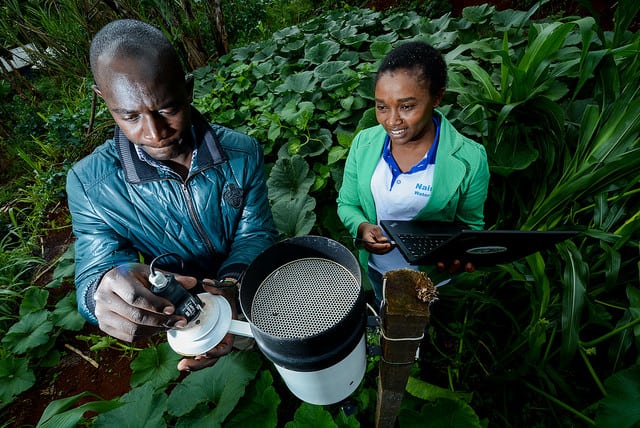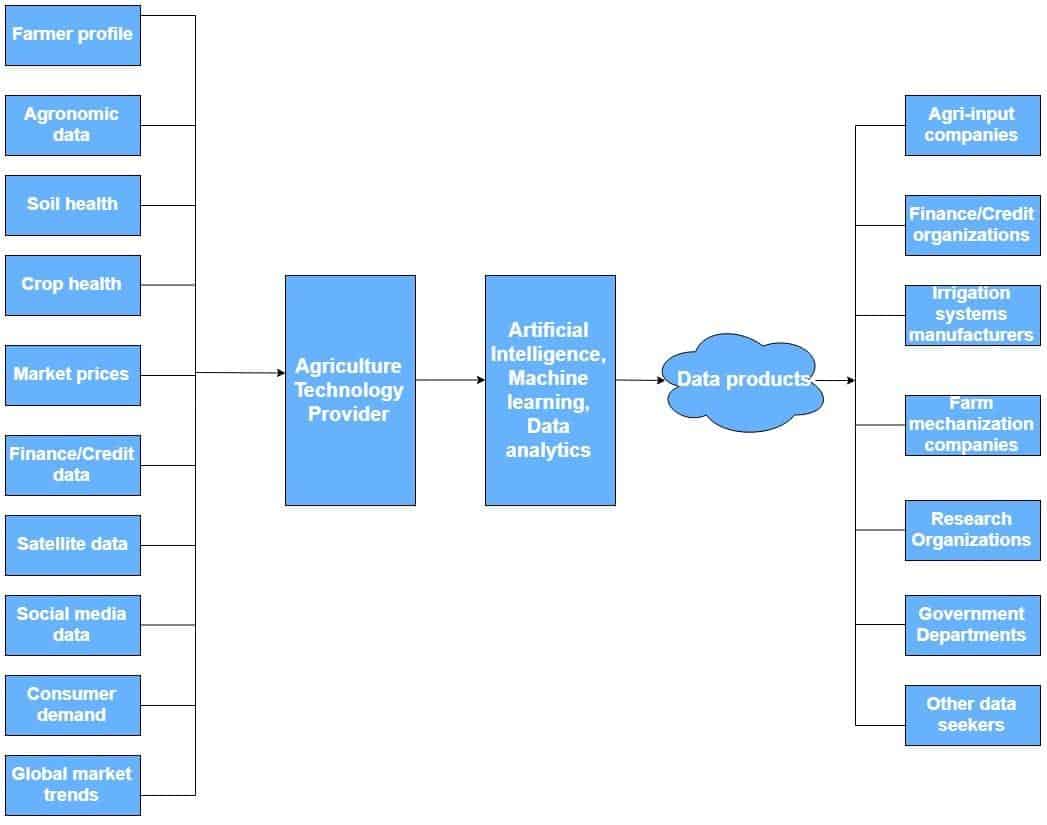Data democracy: Data from the people, by the people, for the people
If a farmer has the right to consume, sell or share the produce grown by him, then what about the data generated from his farm?

Photo by Georgina Smith / CIAT
Demand for Data as a Service (DaaS) is escalating globally. Especially in Agriculture and allied sectors.
Data-driven agriculture has opened up the gates for ‘agridatapreneurs’ – a new breed of agripreneurs.
In the Indian context, quite a good number of startups and experienced players are venturing into Agri-Tech space. Data is the fuel for these organizations and collected data will be processed with the help of machine learning, deep learning algorithms, and data analytics to get meaningful insights.
These insights will be shared with farmers in the form of advisory services to make informed decisions. But does the journey of the data end here or there is something beyond?
To make the company sustainable revenue generation is the important aspect. Farmers are ready to pay only if they are getting better results. This may take some time and companies are not completely dependent on this revenue.
Agri-Tech providers develop data products and market those to potential buyers like agri-input companies, irrigation systems manufacturers, financial/insurance institutions etc.
Based on these data products, and from their business intelligence, these companies will again reach the farming community to sell their products.
Need for Data Empowerment
In India’s Agriculture and allied sectors’ journey from being data poor to data rich, technological interventions played a key role.
Though it started from information dissemination, with the technological advancements and startup revolution, now it is racing towards data-driven agriculture.
During this traverse, a huge amount of data is being collected from the farmers and farms.
Farmer’s consent is crucial during data collection and they should be well informed about how their data is going to be used. In addition, a provision, in the form of an agreement, should be required to so that they may opt out from this if they are not interested or convinced.
In majority cases, there will be only oral consent without explaining the details.
Awareness must be created among farming communities about the importance of data and their rights over the data, along with increased digital literacy.
The data collected has to be given back to the farmers. If not to the individuals, then to Farmer Producer Organizations that can use that data to address important issues.
Instead of graphs and charts, customized data visualizations, which fit in the local context, will help in better understanding of the problems and assists in working towards solutions.
Extension professionals and development organizations could be the key players to support the farming community in this process.
Capacity building in the area of big data analytics is the what is needed at the moment, and governments need take initiative and develop policies and frameworks to manage and leverage big data.
Data protection and empowerment laws should ensure that an individual’s privacy is not at risk and that companies be required to share the collected data with the users and government/research organizations to aid in avoiding data monopoly.
For real digital empowerment, it must go hand-in-hand with data empowerment – for the better use of data to empower farmers and society.
Veerendra Jonnala
ICT4D Consultant
India
Blog Competition Entry
This article is published as a part of our publicly open big data blog competition. If you have enjoyed this reading this entry, you can vote by liking, commenting or sharing.






This article address the potentiality of data that which is yet to mine. Since importance of value is ascribed to economic parameters, If farmers can not sell their agri produce to fair price. It is apt to sell his data for firms which valued them. Please keep writing more articles